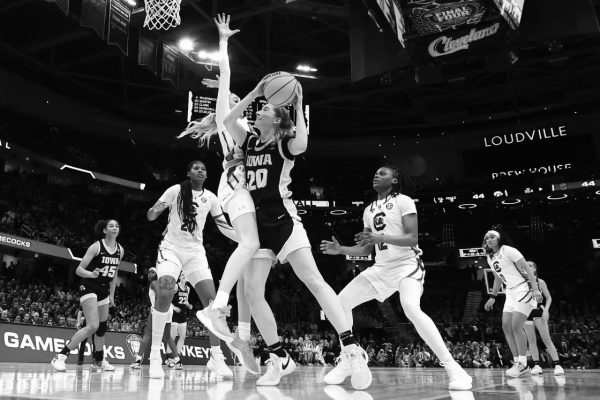Failed European Super League a Symptom of Greedy Ownership
For 72 hours last week, European professional soccer was flipped upside down. On April 18, twelve of the richest soccer clubs in Europe formed the European Super League to the shock and disappointment of the soccer community around the world, which quickly responded with consequences for what many saw as a grab for money from the already most advantaged teams.
The plan was for the league to be centered around weekly international matchups among the elite founding clubs. It was created by the ownership groups of each club to draw increased TV revenue from the big-name contests. The clubs would then share the revenue among themselves, which would be far more profitable than the structures of their current leagues where they share TV revenue with smaller clubs.
Soccer’s major governing bodies responded swiftly and intensely. Soon after the ESL’s formation, several groups created consequences for any club which participated in the ESL. All participating clubs would be banned from their domestic leagues, the Union of European Football Associations Champions League, and the individual players were going to be banned from the FIFA World Cup. However, following the bans, the ESL was scrapped just three days after its founding. The outcry from players, coaches, and fans who feared the loss of beloved European soccer traditions also played a role in the ESL’s downfall. Fenerbahçe S.K. midfielder Mesut Özil, who has played in several Champions League competitions with founding ESL member league Arsenal F.C. and won a World Cup with Germany in 2014, expressed his frustration over Twitter.
“Kids grow up dreaming to win the World Cup and the Champions League — not any Super League,” Özil tweeted.
Liverpool F.C. manager Jürgen Klopp has also expressed his distaste for the ESL since the idea was leaked in 2019. Last week he reiterated his stance and his belief that the Premier League — which Liverpool plays in — is still competitive.
As in the rest of the world, the ESL was not well received by Oberlin’s soccer community and prompted discussion on the state of European soccer in general.
James Monroe Professor of Politics Chris Howell is a supporter of Chelsea F.C. — an original member of the ESL. He was born practically across the street from the club’s home stadium, Stamford Bridge, in London and has followed the club through ups and downs. He was not supportive of the formation of the ESL but understands why the project was attempted.
Howell believes the formation of the ESL is just a result of the inequality issue that European soccer already faces.
“The combination of TV revenue and the way a few clubs have become global brands with huge merchandising opportunities has created both large disparities between clubs and also a risk averseness as those top teams seek to protect those brands,” Howell said.
Much of the soccer world was up in arms about the ESL announcement, but Howell believes people should have seen it coming.
“There is a lot of mock outrage,” he said. “Pundits and politicians are shocked — shocked! — that money plays a part in the game and that a few owners — oligarchs of one kind or another, all of them — turn out to be greedy bastards. … The Premier League was created almost 30 years ago by a handful of greedy clubs in order to secure more TV revenue for themselves. The ESL is basically the same principle, just on steroids.”
Chair of Mathematics Kevin Woods is an American soccer fan who developed a love for Liverpool F.C. — another original ESL member — when the Premier League began to be regularly televised in the United States in the 2000s. Woods was surprised by the way in which the ESL rose and fell.
“It seemed so obviously doomed to fail that I thought it was a negotiating tactic: they’d come out with a less crazy plan in a few days and call it a ‘compromise,’” he said. “But then they just folded.”
There were a few adjustments to the UEFA Champions League that were announced in the wake of ESL’s fall, but it did little to compromise for the big clubs interested in joining ESL.
Unlike Howell, Woods believes there is room for upsets in current structures of European soccer and the matchups between the typical blue bloods are not the only exciting thing.
“Leicester City went from playing in the third tier of English soccer to winning the Premier League in about five years,” he said. “I think every team — and fans of every team — dream of that happening to them. The Super League was going to wall off the founding clubs so that they didn’t have to worry about the ebb and flow of the traditional leagues.”
College third-year and member of the men’s soccer team Ryan Kim is a Chelsea supporter like Howell and loves the club because of its passionate fanbase. He believes the formation of the ESL betrays the diehard supporters but he recognizes that it is an extension of the greed already demonstrated by owners of top clubs.
“The fans are being treated as consumers now as the club is making the fans pay more money for more games, TV subscriptions, and more,” he said.
Kim also emphasized how the fans are the reason these clubs have become so rich and powerful in the first place. He is supportive of the Chelsea fans speaking up and protesting outside of Stamford Bridge the day after the announcement of the ESL.
For now, the ESL is dead, but that likely won’t stop the ownership of Europe’s top soccer clubs from figuring out other ways to capitalize off their popularity. Kim believes domestic European leagues and the UEFA Champions League will be subject to change in the future for this reason.
“At the end of the day, more money is to be found within the game — and that is just capitalism at its finest,” Kim said.





